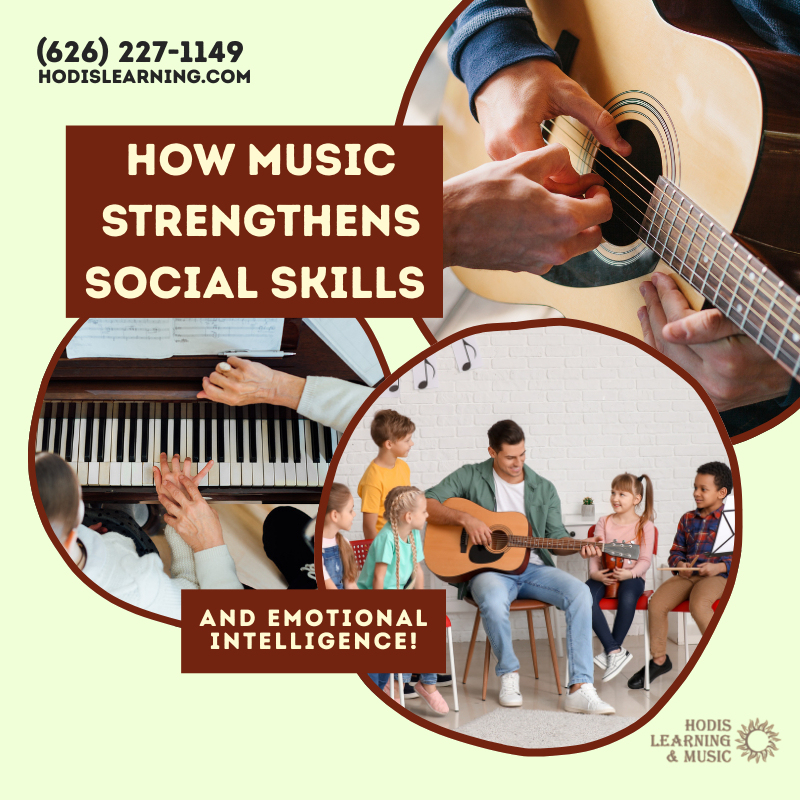Collaboration, emotional awareness, and strong communication are all key life skills. They are necessary for success in classrooms, boardrooms, and beyond. But did you know that music can be a powerful tool to develop these essential life skills? Today we’re shining a spotlight on music, and how it helps nurture social skills and emotional intelligence in students of all ages.
The Social Side of Music
Whether it’s singing in a choir, playing in a band, or even collaborating on a songwriting project, music is inherently social. It brings people together with a shared purpose: to create something meaningful. In this collaborative process, students learn to listen, adapt, and contribute to a larger whole. These are the building blocks of teamwork.
Teamwork in Harmony
Participating in group music activities requires coordination and mutual respect. Each member must be aware of their role and stay attuned to others. This mirrors real-life team dynamics where success depends on trust, timing, and cooperation. Young musicians quickly learn that if one person is out of sync, the entire performance suffers. Through rehearsals, feedback, and collective effort, students build valuable teamwork skills that transfer to academic group projects, sports, and eventually, the workplace.
Music and Empathy
Emotional intelligence begins with empathy, or the ability to understand and share the feelings of others. Music, by its very nature, evokes emotion. When students explore different musical styles and lyrics, they engage with a wide range of emotional experiences and perspectives. Performing or listening to music composed in another time or culture encourages students to connect with stories and emotions beyond their own.
Group music-making further deepens this connection. Students learn to sense and respond to their peers’ emotions, especially during live performances where energy, nervousness, or excitement can run high. Over time, they become more skilled at reading nonverbal cues, offering support, and being emotionally present. There are key qualities of empathetic individuals.
Music as a Language of Communication
Music is a universal language, and learning it enhances more than just auditory skills. It strengthens both verbal and nonverbal communication skills. When students collaborate musically, they learn to give and receive constructive feedback, express ideas clearly, and listen actively. These communication skills are especially important in academic and social settings.
Even the structure of music promotes clearer thinking. Understanding rhythm, phrasing, and harmony improves a student’s ability to organize thoughts and articulate them with confidence. These skills are equally useful when it comes to writing essays, presenting projects, or simply having thoughtful conversations.
Why This Matters in Education
At HLM, we believe that academic success is deeply linked with social-emotional development. Students who work well with others, manage their emotions effectively, and communicate clearly are more engaged in learning and more resilient in the face of challenges.
Integrating music into a child’s education (whether through school programs or extracurricular activities) helps lay the foundation for these vital life skills.
In Tune with the Future
By fostering teamwork, empathy, and communication, music becomes a tool for personal growth and lifelong success. If you’re interested in helping your child develop not only academically but also emotionally and socially, consider how music might play a role. Call us at (626) 227-1149 or email today to learn more about music lessons!


